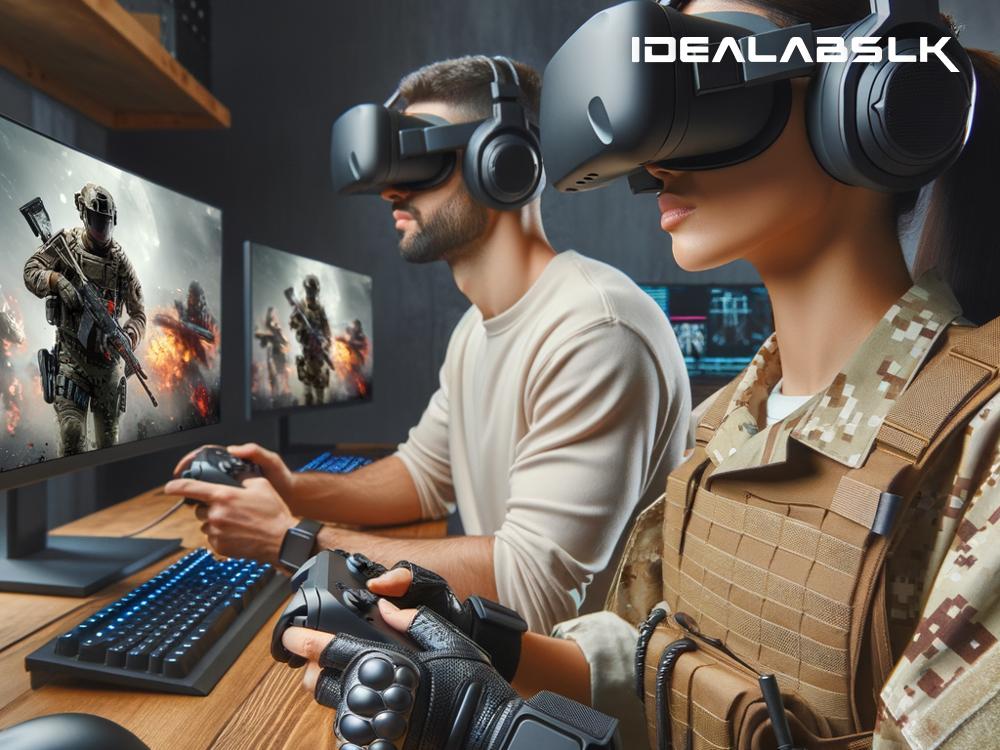Title: The Future of Combat: How VR Will Transform Call of Duty and FPS Games by 2025
For years, the Call of Duty series has been at the forefront of the FPS (First-Person Shooter) genre, delivering intense combat scenarios and thrilling storylines that have captivated gamers worldwide. However, as we peer into the future, specifically by 2025, one can't help but wonder how VR (Virtual Reality) will revolutionize the Call of Duty experience and the FPS genre at large. The fusion of VR technology with FPS games promises to not just change but completely redefine how we perceive, interact, and engage with these virtual battlefields. Let's dive into how VR will elevate the FPS experience to unprecedented heights by 2025.
Immersive Realism Like Never Before
The primary allure of VR in FPS games, including Call of Duty, lies in its unparalleled ability to immerse players in the game's environment. VR isn’t just about playing a game; it’s about stepping into it, living within it. By 2025, with advancements in VR technology, players can expect an even more refined and realistic experience. Imagine feeling the rain on your skin during a stealth mission, the ground shaking as tanks roll by, or the adrenaline rush of a close-quarters battle. VR will bring an unmatched level of depth and realism to the FPS experience, making every mission more intense and every victory more satisfying.
Interactivity and Physical Engagement
One of the transformative aspects of VR in games like Call of Duty is how it changes player interaction with the game world. Currently, players use controllers or keyboards to perform actions. By 2025, VR technology will likely evolve to understand and interpret a wide array of physical movements, making gameplay more intuitive and engaging. Imagine physically leaning to peek around corners, using hand signals to communicate with your squad, or mimicking the motion of throwing a grenade. This level of interaction not only makes the gameplay more exciting but also bridges the gap between the virtual and real worlds, enhancing the overall gaming experience.
Strategic Depth and Teamwork
With VR's immersive capabilities, Call of Duty and similar FPS games can achieve a new level of strategic depth. By 2025, VR could enable a more realistic line of sight and field of view, forcing players to rely on tactical positioning and teamwork more than ever before. Communication and coordination with your team could become crucial, as VR enhances the need for real-world military tactics. This could mean the difference between a resounding victory and a crushing defeat, pushing players to think and act like true soldiers on the battlefield.
Training and Preparation
An interesting byproduct of VR's integration into FPS games is its potential use for military training. By 2025, simulations in games like Call of Duty could become so realistic that they serve as effective training grounds for actual soldiers. The immersive environments, realistic weapon handling, and tactical gameplay could help military personnel practice decision-making, situational awareness, and teamwork in a safe, controlled setting. This crossover between gaming and real-world application underscores the transformative power of VR technology.
Facing the Challenges
While the integration of VR into FPS games promises an exciting future, it also presents significant challenges. Developing these immersive experiences requires substantial technological advancements, particularly in VR headset comfort, motion sickness reduction, and graphical realism. Moreover, there is the concern of accessibility, as high-quality VR equipment is currently expensive. By 2025, efforts must be made to make VR more affordable and user-friendly to ensure that everyone can enjoy the next generation of FPS gaming.
Conclusion
The potential for VR in Call of Duty and the FPS genre as a whole is massive. By 2025, we could be experiencing games in a way that was once considered science fiction. The immersive realism, interactive gameplay, and strategic depth offered by VR technology promise to not only enhance the gaming experience but also blur the lines between the virtual and real worlds. As we look forward to this exciting future, one thing is clear: VR will not just change the FPS experience—it will revolutionize it.

